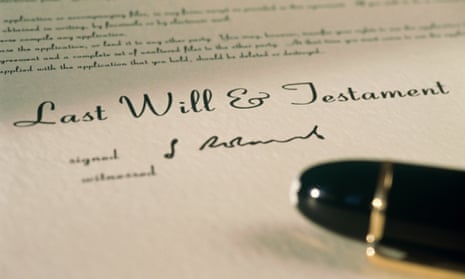Like most of the British public, I disliked the Conservatives’ “dementia tax” proposal during the election campaign. When you make someone’s access to social care dependent on giving up the money they intend to pass on to descendants, you risk encouraging them to struggle on without seeking the help they need. While you’d hope most people would prioritise the wellbeing of elderly family members over cold hard cash, it seems inevitable that some might delay organising support for relatives to avoid depleting their future wealth.
There are strong, practical reasons for making essential public services free at the point of access – even when means testing would theoretically ensure only people who can afford it are required to pay directly. It’s impossible to fully understand the value of universality if your only assessment criteria is redistributive efficiency.
Politics is a funny business, though, and the inevitable reduction of every complex issue into a simple binary conflict (or, very occasionally, a three-way tussle) means you can often find yourself in possession of some unlikely allies. While arguing against the dementia tax on the basis that it creates perverse incentives and fails to spread the financial burden among all those who can afford to pay, I found that the most common objection seemed to be against dipping into inheritance at all.
The idea that we should be able to pass on our life’s accumulated wealth to descendants is deeply embedded. It appeals to the fundamental biological urge to protect your offspring and propagate your genes. Though only a small minority of estates are subject to inheritance tax in Britain as it currently stands, opinion polls consistently find that the majority of people oppose it. Instinct seems to override common sense. VAT falls disproportionately on people with low incomes, but it’s far less hated.
Understandable sensitivity around issues relating to death make it difficult to discuss, but it’s time this conventional wisdom was held up to proper scrutiny. Yes, the desire to pass on property to your descendants may be natural – but why should we be slaves to our biology? Social progress has frequently depended on our ability to transcend individualistic urges and work together for the common good.
In contemporary times, most people agree that tax should facilitate transfer of wealth from those who “have” to those who “need”. Public spending is messy and complicated, but the overall redistributive flow is from the relatively rich to the comparatively poorer. Justifications for not totally eradicating income equality have both moral and practical arguments: it’s argued that people morally deserve to be rewarded for being good at their job, and also that society needs to offer financial rewards to encourage people to work hard and be productive.
Neither of these arguments really apply in the case of inheritance. Morally speaking, people who stand to inherit large sums haven’t done anything to earn that money. An accident of birth placed them in a comparatively wealthy family and they’ve benefited from that their whole life. Some people who stand to inherit have struggled, true, but so have many people who won’t inherit anything at all.

It’s sometimes claimed that the prospect of leaving an inheritance motivates people to work harder, but I’m sceptical that self-interest isn’t enough. Where’s the evidence that people without children are less productive, on average? And those who are motivated by a desire to help their family will presumably still want to do so while they’re alive. Honestly, if people did decide to retire earlier and enjoy their later years, instead of slaving away for as long as possible, would that be such a bad thing? And given that youth unemployment is such an issue, it may well be socially beneficial to free up those jobs.
Some may argue that leaving inheritance is a moral right. It’s not about whether the recipients deserve or need it, nor whether having the ability to do so results in productivity gains. The point is that the deceased earned that money and it should be up to them where it goes.
This is where it gets a little murky. We tend to honour the wishes of the dead – at least to some extent. Those of us who are religious may believe their souls live on and they can witness what’s happening. Even committed atheists recognise the value of respect in this context, even if their primary concern is the emotional impact on those left behind. If someone wanted a certain sort of funeral, for example, it seems right to try and fulfil that. But what if the desires of the dead directly damage the wellbeing of the living? Is there any situation in which the previous instructions of someone no longer actually present in the mortal realm should be prioritised over the needs, interests and opinions of those who are still alive and kicking?
In the UK, official statistics suggest around £77bn is passed on in inheritance each year (tax avoidance means the real amount could be even higher). That’s money that no living being has a moral claim to, according to standard justifications of wealth inequality and private property. Were that money redistributed by the state, it would cover the cost of adult social care several times over. It could plug gaps in NHS, education and police funding. It could provide the kind of comprehensive welfare state that meant nobody had to worry about their family after they passed away – because there would always be a safety net.
Cultural norms teach us that the inheritance of private property is the default and any expropriation of this wealth must be justified. It should be the other way round. There’s some value in respecting the wishes of the dead, yes, but why is that more important than social housing, healthcare or any number of other possible uses for the money? It’s natural to want to protect and care for your family, but what about people who don’t stand to inherit a penny? Is there any reason their needs should matter less? We have to fund our state somehow – what makes inheritance tax more objectionable than income tax or VAT charged on essential consumer goods?
A 100% estate tax (perhaps with a small allowance for objects of sentimental value) isn’t a policy we can expect to see in a party manifesto any time soon. It’s well outside the current spectrum of mainstream political opinion. Questioning the status quo is always going to be a somewhat uncomfortable process, though, and all kinds of major social changes seemed impossible until suddenly they weren’t.

